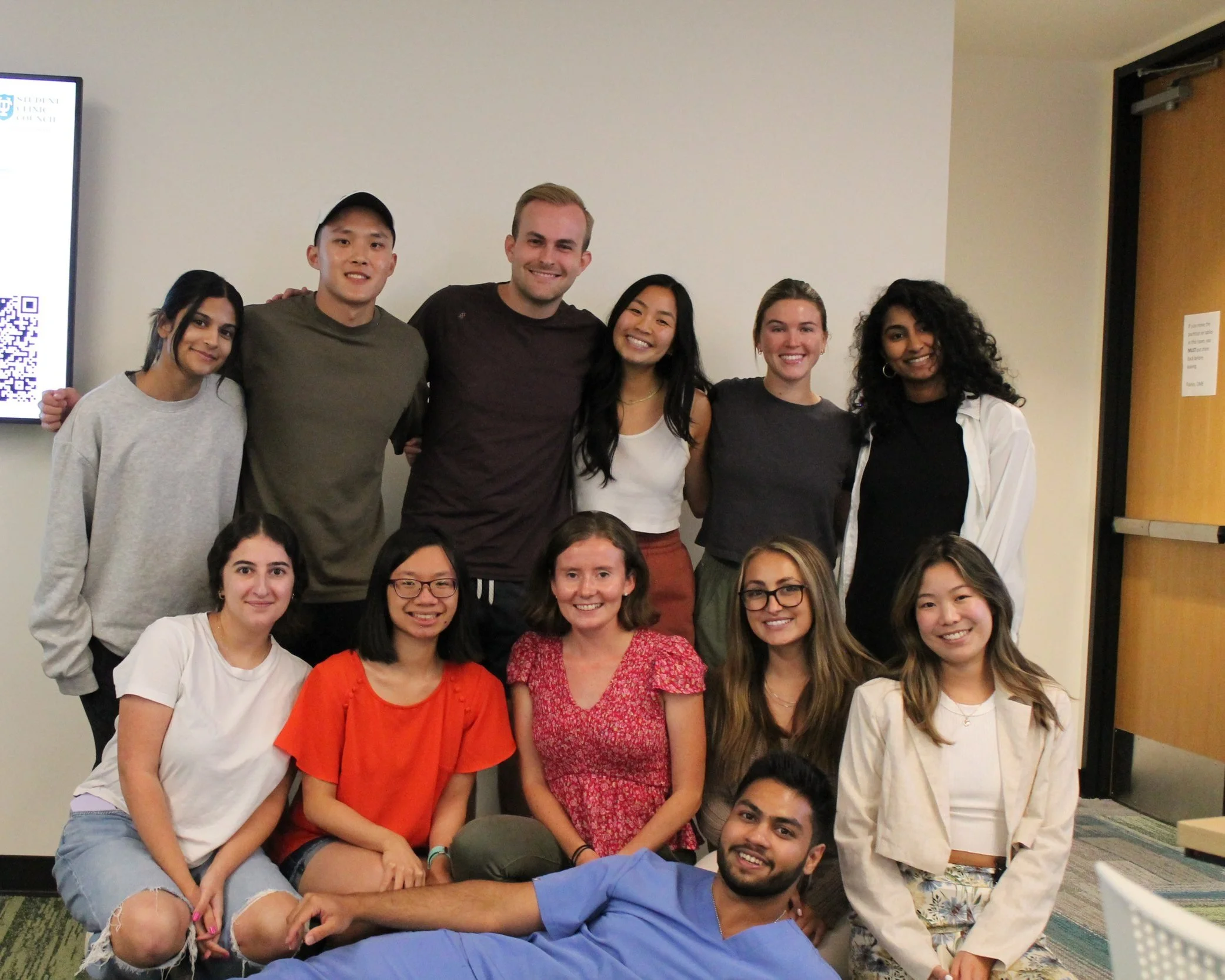Tuberculosis Clinics
About:
Tulane’s volunteer TB screening clinics see over 2,500 patients annually. Most of these patients are experiencing homelessness and/or are in some form of recovery program. These screening clinics provide an incredible service to the community of New Orleans, especially to a sub-population that has been historically marginalized by society. Additionally, the TB screening clinics provide an incredible opportunity for medical students to gain personable, one-on-one patient interactions.
Clinic Sites:
Bridge House, New Orleans Mission, Ozanam Inn, Salvation Army, Grace House Low-Barrier Shelter
TB Coordinator Information
TB Coordinators:
Jonathan Hurley: jhurley1@tulane.edu
Hannah Chiu: hchiu1@tulanee.edu
Trevor Anderson: tanderson4@tulane.edu
Contact Information:
tbcoordinators@tulane.edu
Separate Clinic Contact Information:
Ozanam: ozanamtbleaders@gmail.com
NOM: nomtulaneclinicleaders@gmail.com
TB Clinic Leaders
Bridge House
Hannah Chiu: hchiu1@tulane.edu
Allison Anker: aanker@tulane.edu
Salvation Army
Hannah Boozalis:
hboozalis@tulane.edu
Mary Catherine Stovall: mcstovall@tulane.edu
Tiffany Quach:
tquach1@tulane.edu
New Orleans Mission
Jonathan Hurley: jhurley1@tulane.edu
Julia McGee: jmcgee10@tulane.edu
Eric Moca: emoca@tulane.edu
Grace House
Alexandra Campbell: acampbell6@tulane.edu
Tiffany Shick:
tshick@tulane.edu
Ozanam Inn
Trevor Anderson: tanderson4@tulane.edu
Deeya Patel : dpatel9@tulane.edu
Serena Mahalingam: smahalingam@tulane.edu
Low Barrier Shelter
Jeessan Jishu:
jjishu@tulane,edu
Kenneth Nguyen: knguyen19@tulane.edu
Training Process
-
Medical students will be taught how to perform a basic TB screening test. This involves two parts: placing and reading a PPD (purified protein derivative.) These trainings are held twice a year, once in the fall and once in the spring. Before volunteering at a TB screening clinic, it is required that a medical student attends one of these two trainings. In addition to learning how to place and read PPD’s, these trainings will include general demographic information regarding the prevalence of TB in New Orleans, the pathology of TB, etc.
-
Before placing a PPD, medical student volunteers will assist each patient is completing a questionnaire to assess the patient’s risk for having TB. This questionnaire asks questions regarding
If the patient has any active symptoms of TB (ex: night sweats, coughing up of blood, etc.)
If the patient has any risk factors that predispose them to having TB (ex: HIV status, previous incarceration, etc.)
After completing the questionnaire, volunteers will place the PPD via an intradermal injection. Within 48-72 hours, the patient will return to the clinic to have their PPD read. For more details on placing and reading tuberculosis PPD’s, please see https://www.ncbi.nlm.nih.gov/books/NBK214439/
If a patient has a “positive” TB screening test, they will be referred to Wetmore TB Clinic, which is overseen by Dr. Amy Wolfe, MD. At Wetmore, the patient will a) receive further testing to confirm they are infected with TB, and b) receive treatment for TB (if applicable.) For more information on Wetmore, please see http://ldh.la.gov/index.cfm/directory/detail/4852/catid/192
-
Annually, the TB Screening Clinics undergo a risk assessment to ensure medical student safety. Should an event such as an accidental needle stick occur, the TB leader who is present will make sure the volunteer receives immediate treatment. The TB leader will also make sure that the volunteers have safe transportation to and from the clinic.
There has yet to be a medical student infected with TB through volunteering at Tulane’s TB screening clinics. Besides the protocols in place to minimize the risk of students contracting TB, the pathophysiology of TB also accounts for the minimal risk of medical students becoming infected with TB. Regarding the pathophysiology of TB, there are two stages of TB: active and latent.
Active TB is when the patient is infectious. It means that the TB bacteria are replicating within the patient, causing symptoms such as coughing up of blood, chest pain, night sweats, fevers and chills, etc. Encountering a patient with active TB is very rare (less than 1 per year in all of Tulane’s TB screening clinics.) However, should a patient have suspected active TB, they are immediately refereed to the emergency room. Additionally, the patient is given a respirator to prevent the spreading of bacteria from him or her to the medical student.
Latent TB is when the patient is not infectious. During this phase, the TB bacteria are dormant within the patient’s lungs. In essence, the bacteria are “sleeping” and thus not infectious. If a patient has TB at one of our clinics, it is most likely the latent form. This latent form will be detected by the PPD screening test, enabling the patient to receive care before the TB becomes active/infectious.
-
Scrubs (green preferred), close-toed shoes, stethoscope (as needed).
